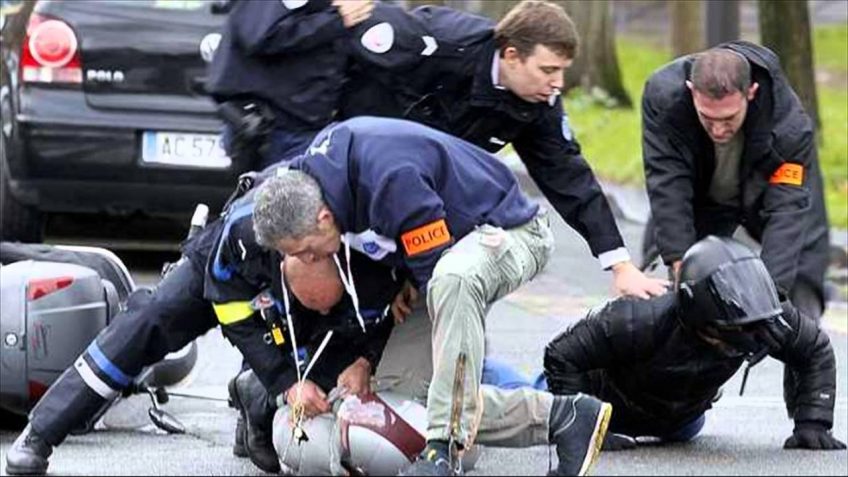[Cover story on the PD on Monday 5-2-2016 about the prosecution of “failure to comply”]
Most of us know that we can’t control other people’s choices. This knowledge doesn’t stop us from trying, of course, but we aren’t really surprised when we tell someone to do something and they don’t. Even when this someone is our child the fact that we have given a command doesn’t mean we will get compliance. As often as not, the order will be met with the query, “Why?”
In the larger social order we want there to be a force that will control errant behavior. We create a certain class of powers that are supported by law and appoint persons to have these police powers. We train them and we require them to take an oath to properly uphold the law. We feel safer because of the presence of those who are pledged to protect and to serve.
But from time to time someone with the badge may order us to behave in a particular way that doesn’t seem to be consistent with safety and public welfare. The command may not be within what we understand to be the law and may even be experienced as an abridgment of our rights. We resist.
While this resistance is understandable, it is also a response that weakens the authority of the law. It becomes an occasion for the decay of social order. It demands our attention. Is this an overreach on the part of the police or a rebellion on the part of the populace? We must be very clear about this. Both the police and the populace have rules they have to follow. And when the populace comes to believe that the police are not obeying the rules, rebellion is the result.
The populace is by nature unruly. The police are by design disciplined. It thus falls to the police to police its own. When we have cops who go beyond their appointed powers they undermine the authority of all police officers.
Rev. Dr. Mark Lee Robinson
Monday, May 02, 2016
